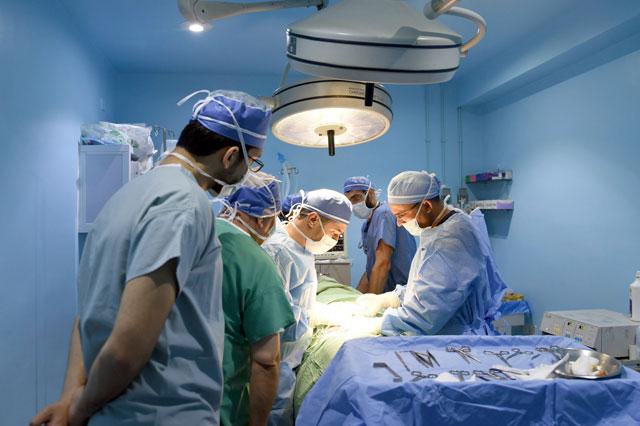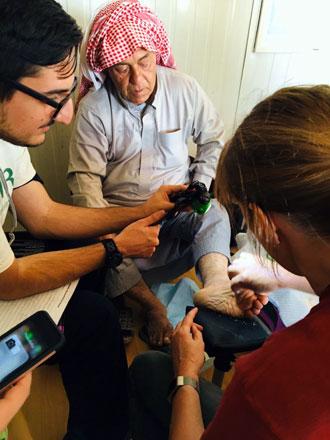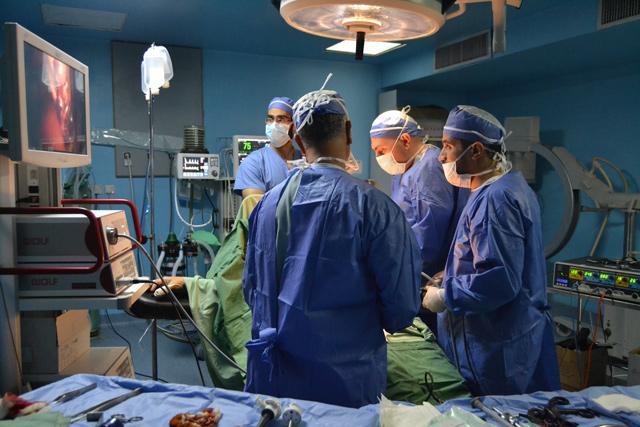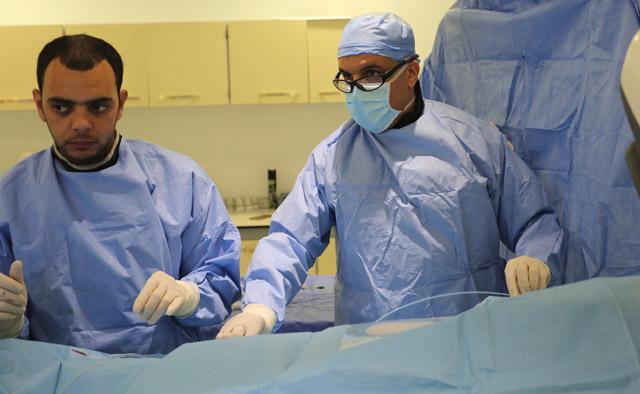You are here
Doctors set up clinics to provide free medical treatment to refugees, vulnerable Jordanians
By Maram Kayed - Mar 31,2019 - Last updated at Mar 31,2019

In this undated photo, medical volunteers perform a surgery. The doctors recently set up clinics throughout the country to provide free services to refugees and underprivileged Jordanians (Photo courtesy of Atlantic Human Relief)
AMMAN — Some 110 medical doctors from Jordan and other countries across the world recently arrived in Jordan to volunteer and provide medical and humanitarian aid for patients in refugee camps and underprivileged areas this week.
Atlantic Human Relief (AHR), an international medical relief organisation that is responsible for the initiative, was founded by Humam Akbik and Beth Tammaro in 2012, according the organisation’s website.
Since its establishment, AHR has organised biannual and sometimes tri-annual week-long mission trips to Jordan to provide services to refugees in various parts of the country.
“Every mission has a different purpose. This year we are targeting patients in need of general surgical operations and paediatric operations. We also have cases in the fields of urology, neurology and gynaecology, but to a lesser extent,” Akbik told The Jordan Times over the phone.
Another focus of the mission, which is taking place from March 30 to April 4, is dental procedures, specifically for children with special needs.
“A pressing issue when it comes to kids with special needs is that their parents usually do not take them to dentist because it is very hard for some of them to stay in one position for an extended period of time,” Akbik added.
However, AHR’s team during this visit includes 49 dentists as well as anaesthesiologists who have extensive experience executing dental procedures on children with disabilities.
Operating in six different clinics throughout Jordan, this year’s team will is also spreading out to provide medical service to areas other than just refugee camps.
“Now that the number of volunteers is increasing, we are spreading out to include other underprivileged areas in Irbid, Mafraq and the Nazzal neighbourhood in Amman,” said Leen Jabary, an AHR volunteer.
She added: “Entertainment activities will also be organised for children from refugee camps.”
During AHR’s last mission, the team received 7,000 patients, wrote 4,900 prescriptions and performed 116 surgeries. This year’s mission, according to Jabary, will have similar numbers.
AHR’s founder said that in all of its missions, the organisation buys medication and medical tools from Jordanian-owned companies to “support the local economy”.
He concluded: “Shedding some light on the reality of Jordan’s efforts is very important. Half of my team are Jordanians, and I believe that Jordan itself has been doing the best it can for refugees and others in the past three years, despite the challenges it faces.”
Related Articles
AMMAN — Over 200 volunteers with Atlantic Humanitarian Relief (AHR) from across the globe spent the past week providing medical, surgical an
AMMAN — Over 7,000 refugees and vulnerable Jordanians have received free medical treatments and surgeries over the past week through the sec
AMMAN — It is the belief that everybody is able to contribute positively to his or her country that motivated US-based Jordanian cardiologis


















